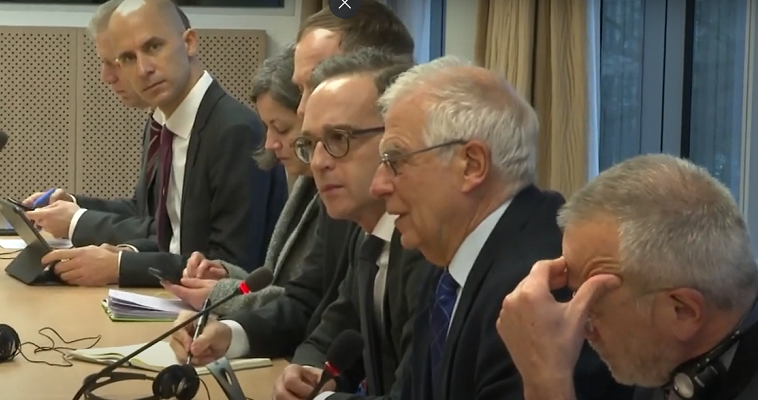Alexandros Tarkas: Mitsotakis in the nets of Berlin and the Michel-Borrell duo
21/08/2020
The Greek government is trapped in the fatal proposals of Berlin and foreign mediators, who link the repetition of the Athens-Ankara exploratory contacts with the widening of the topics and their formalization (instead of the informal nature of the period 2002-2016 and the examination of only Greek maritime government issues).
Prime Minister Kyriakos Mitsotakis – not least Foreign Minister Nikos Dendias and the Diplomatic Service – is awaiting the outcome of European Council President Charles Michel and High Representative Josep Borrell’s contacts with Ankara (although there are no signs that they will be effective). The Maximos mansion (the PM’s office) has also placed great hopes on the former German ambassador to Athens, Jens Pletner, who currently holds the critical position of political director of the German Foreign Ministry.
Jens Pletner plays an invisible role at the same time as the public contacts of the diplomatic advisers of the Prime Ministers of Greece Eleni Sorani and Germany Jan Hecker, while the separate initiatives of the State Department are much more careful and his proposals are more moderate. In detail, the picture of the most critical developments is the following:
First, Michel and Borrell favor a full-blown Greek-Turkish negotiation on the grounds that EU condemnation and financial sanctions will not have an impact on President Erdogan’s behavior. The EU leadership is panicking over immigration and remains trapped in Josep Borell’s unacceptable statement a month ago about “disagreement between neighboring countries over waters delimitation”.
In view of the Informal Council of EU Foreign Ministers on 27 August and the European Council on 24 September, the parallel development of the Athens-Ankara exploratory contacts, as well as the EU-Turkey talks on upgrading the customs union and increasing the financial refugee assistance, are being promoted.
The role of Jens Pletner
Secondly, Berlin, contrary to what Athens hoped for and despite Maximos’ communication leaks, rejects the imposition of sanctions on Turkey. The categorical denial was conveyed to the Greek and Cypriot leaderships already before the Oruc Reis crisis, with the reminder that there will be no policy change until the end of the German EU presidency (end of the year). Berlin assures, at least, that it will not veto procedures if proposals for sanctions are submitted for discussion, without requiring immediate decision-making.
In this context, the role of Jens Pletner, who during his tenure in Athens (2017-2019) had developed a relationship of trust with Kyriakos Mitsotakis, is assessed as crucial in the effort to bend Greek reservations about diverting exploratory contacts toward a comprehensive negotiation. . The Maximos Mansion is said to still rely heavily on the involvement of Jens Pletner, ignoring the clear indications that he is not exceeding his narrow official duties.
In addition, Jens Pletner is identified with German Social Democrat President Frank-Walter Steinmeier without adequate access to the Christian Democratic Chancellery. Although it is, of course, useful to have contacts with foreign officials in high positions, the final balance shows that Pletner’s mediation is characterized more by pressure on Athens and less by the transmission of useful Greek messages to Berlin.
Thirdly, the United States is deeply concerned about the possible clash of two allies in the southern wing of NATO and emphasizes the constant communication of the Greek-Turkish military leadership to avoid explosive developments. The US is aware of and favors German mediation efforts, but does not fully identify with them.
Mitsotakis’s message to Pompeo
Washington favors exploratory contacts, but (contrary to German rudeness and haste) finds the agreement on successive rounds of talks more realistic. It prefers to have a first meeting, in order to reach a consensus for the next phases, proceeding – later and gradually – to the more difficult issues.
Bearing this in mind, Kyriakos Mitsotakis is facing big dilemmas regarding the confrontation of the Turkish aggression and the course of the country and his government. The first red line, about “reacting by non-diplomatic means” in case of, in general, violation of sovereign rights, has been violated. It is unknown what will happen to the second red line, for the special case of Turkish drilling within the Greek EEZ.
According to credible sources, Kyriakos Mitsotakis had stressed to US Secretary of State Mike Pompeo in October that “we will be forced to react and there will be consequences.” Athens is sending similar messages to Washington at this stage, but Ankara ignores them provocatively, like most American persuasions.





